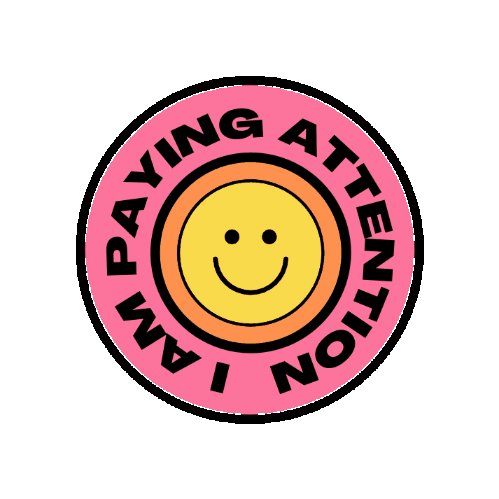The Hidden Cost of Poor Interoception: The Long-Term Toll of Unmet Needs
When the Body Speaks, but the Mind Doesn’t Listen
Interoception is the brain's ability to perceive and interpret internal bodily signals, such as hunger, thirst, heartbeat, and emotional states. It’s how your body maintains balance, prompting you to eat when hungry, rest when tired, or calm breathing when anxious. But it’s more than a one-way street. The brain doesn’t just receive signals it actively predicts and regulates bodily states, aiming to keep you in equilibrium long before you consciously notice something’s off.
Poor interoception emerges when this system falters. You might miss internal cues like hunger or fatigue, or misinterpret them. This disconnect can erode self-awareness, emotional clarity, and the ability to respond to your own needs even in life’s simplest moments, like knowing when to eat or how to calm yourself. It can be easy to feel completely fine one minute & the next you feel utterly awful without knowing why.
So what happens when your body ignores these signals over time?
Chronic stress can diminish your sensitivity to internal cues, causing essential signals like hunger or fatigue to become less noticeable. As these signals grow muted, emotional self-regulation falters, small frustrations can erupt into intense anger, mild sadness may lead to numbness, and rising anxiety can feel inexplicable and overwhelming. Physically, tiny pains or tension can escalate unchecked, leading to chronic pain or burnout.
Examples of Poor Interoception
Missing Hunger or Thirst
People may not realise they’re hungry or thirsty until the sensation becomes intense. They might ignore their body’s signals due to distraction, or simply not perceive them at all. When finally noticed, it’s often too late.Toilet Cues Ignored or Delayed
Some individuals don’t feel they need to pee until it becomes urgent, or they might not feel full versus empty bladder cues, leading to accidents or discomfort.Difficulty Feeling Pain or Discomfort
Some people report hardly noticing pain unless it’s severe, while others react excessively to minor discomfort, pointing to inconsistent or distorted interoceptive processing.Struggling to Recognise Emotional States
For instance, someone might not recognize a racing heartbeat as anxiety or may not feel hunger until it becomes overwhelming.Delayed Temperature Awareness
Some people don’t feel cold or hot until they're extremely uncomfortable e.g., wearing summer clothes indoors without realizing they’re freezing
A first hand personal experience
I grew up watching my mum, a single parent, always on the go, juggling work, looking after us, managing limited finances, and a huge amount of responsibilities. Her life was defined by constant action, with little time to pause, reflect, or tend to her own needs. It wasn’t until about seven years ago, when my mum was suddenly forced to slow down after a extended stay in hospital that the years of ignoring chronic stress , trauma & her own needs caught up with her. She was diagnosed (after a very long wait) with FND (functional neurological disorder).
FND arises from a dysfunction in how the brain and nervous system communicate. This can lead to a variety of neurological symptoms, including limb weakness, seizures, movement difficulties, sensory disturbances, and cognitive issues. These symptoms are real and can be disabling, even though they don't stem from identifiable structural abnormalities. My experience seeing my mum go through this has highlighted a critical truth: not recognizing our own needs isn't just a momentary hiccup; it can be a profound, long-term barrier to healing.
My experience
Witnessing my mum's experience was a profound realisation for me, especially as I recognised similar patterns in myself, & being adhd & autistic i often don’t realise i am anxious until is is completely overwhelming, or i don’t realise i am hungry until i feel physically sick. One particular way this shows up for me a lot is either while i am working or doing something i enjoy. I just keep going until my body and mind completely shuts down, i feel anxious, exhausted, sick & my body aches.
I used to struggle a lot when working full time in an office (before i realised i was audhd) because i would ignore my body signals even more than i would when i am at home. I would end up phoning in sick the next day even though i was perfectly fine the day before, because i wasn’t noticing the signs of overworking, burnout & i wasn’t taking care of myself.
Thankfully now that i know i am audhd & have the support tools in place, this tends to happen less (but not entirely). There are definitely still times that i struggle to interpret my needs because it’s not entirely something we can control. A constant reminder for me is that while we have the autonomy to make decisions, neglecting our needs can lead to significant and lasting consequences.
So how can we avoid ignoring our needs long term?
Cultivate Self-Awareness
Set reminders, whether it’s visible sticky notes, phone alarms to check in with yourself to assess your physical, emotional, and mental states. This practice helps you recognise early signs of stress or fatigue, allowing for timely intervention.
Journalling
When checking in with yourself throughout the day feels hard, it is really important to set time aside to work through why that might be and try and establish ways that you could help yourself build routines & structures that are going to serve you better. Checking in with yourself, assessing your environment and allowing yourself the space to explore without judgement.
Establish Healthy Boundaries
Easier said than done but learning to say "no" when necessary and setting limits that protect your time and energy is so vital. Healthy boundaries prevent overcommitment and ensure that you have the space to care for yourself. This is particularly important in relationships and work environments.
Prioritise Self-Care
Incorporate activities into your routine such as regular exercise, adequate sleep, healthy eating, and relaxation techniques. Self-care is not indulgent; it's a necessary practice to maintain health and prevent burnout. Remember exercise could be as simple as just taking a walk & if you struggle with eating healthy then consider supplements to make sure your body is getting the nutrients it needs.
Community
Be open & honest with those around you who may be able to give you helpful reminders, leave you notes or ask if you have eaten. Not only does this benefit your physical health but also nurtures your mental health too. There is only so much self care can do!
Need some extra support?
We created our journal for this reason (and because we needed it) it can be hard to know where to start when it comes to checking in with yourself, so having visual check ins can be hugely helpful for avoiding burnout.


